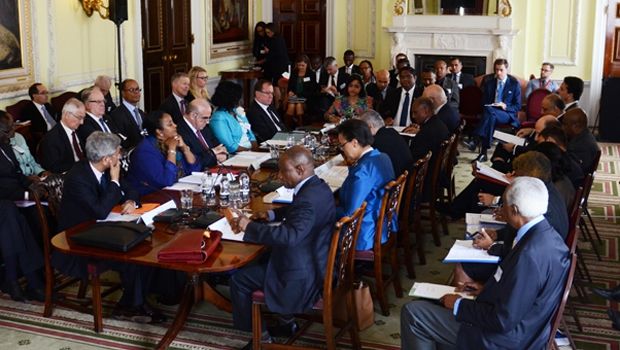Commonwealth urged to suspend Maldives over ‘slide to dictatorship’
A New Delhi-based human rights group has urged the Commonwealth’s democracy watchdog to suspend the Maldives from the organisation over an unresolved and protracted political crisis, warning that “the nation is sliding into a dictatorial system once again.”

19 Sep 2016, 09:00
A New Delhi-based human rights group has urged the Commonwealth’s democracy watchdog to suspend the Maldives over a worsening democracy deficit, warning that “the nation is sliding into a dictatorial system once again.”
The Commonwealth Human Rights Initiative, a group accredited to the 53-member inter-governmental body, said the situation has deteriorated since the watchdog called for “clear, measurable progress” by September to resolve a protracted political crisis.
“Events and developments on the ground give further evidence of curbing fundamental rights, targeted persecution of opposition leaders, misuse of state institutions (including the judiciary, legislature and the police) to restrict, crush and punish dissent, stifling political debate, and crippling independent institutions,” the CHRI said in a scathing submission to the Commonwealth Ministerial Action Group after a fact-finding mission earlier this month.
The CMAG – a rotating group of foreign ministers from eight member states – is due to review progress on six priority areas at a meeting on September 23.
Become a member
Get full access to our archive and personalise your experience.
Already a member?
Discussion
No comments yet. Be the first to share your thoughts!
No comments yet. Be the first to join the conversation!
Join the Conversation
Sign in to share your thoughts under an alias and take part in the discussion. Independent journalism thrives on open, respectful debate — your voice matters.




